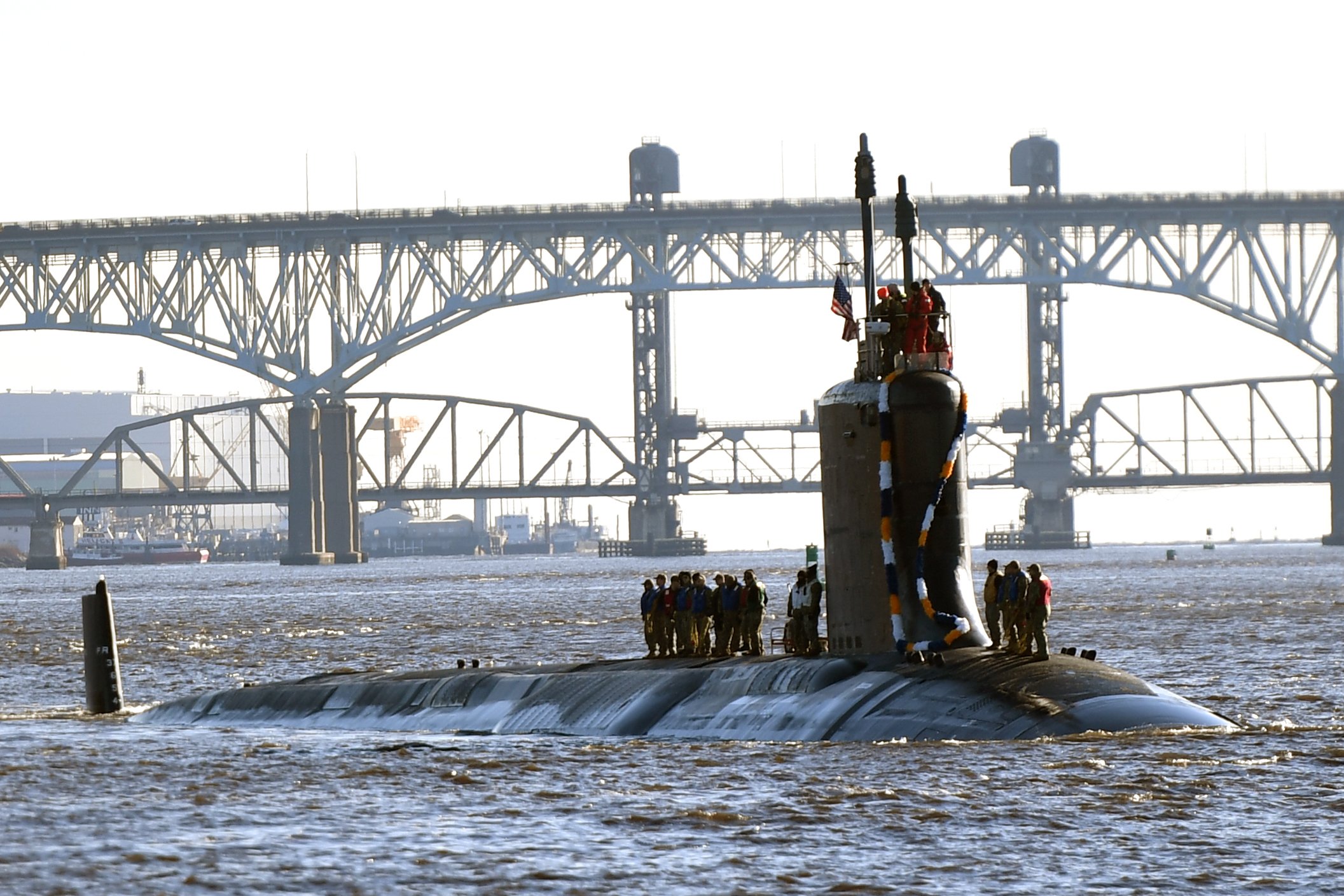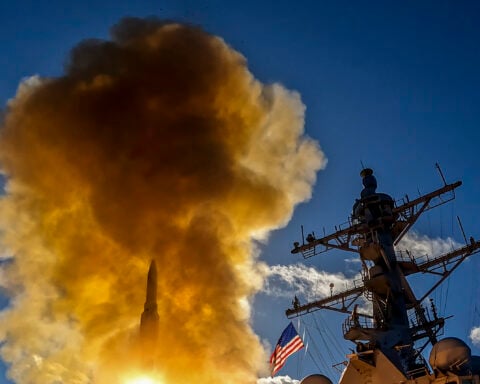
In a split from the House Armed Service Committee, the House defense appropriators wants to buy a single Virginia-class nuclear attack submarine in a draft of the Fiscal Year 2025 defense spending bill.
The bill, released on Tuesday, funds a $31.6 billion shipbuilding budget that includes two Flight III Arleigh Burke guided-missile destroyers, one San Antonio-class amphibious warship and the single Virginia-class attack boat that the Navy asked for in its budget submission. Additionally, the bill prevents the decommissioning of three ships.
The ship buy in the House Appropriations Committee’s defense subcommittee bill is $800 million below and two fewer hulls than the Navy’s initial FY 2025 request for six battle force ships. The legislation cuts funds for a Constellation-class guided-missile frigate, a cut House authorizers also made, and reduces funds for the first Navy’s medium landing ship from $268.1 million to $29.7 million.
The bill adds $417 million for three Ship-to-Shore Connectors and $334.5 million in advanced procurement funds for a new John Lewis-class fleet oiler.
In addition to the reduced shipbuilding scope, the bill cuts the Navy’s decommissioning plan.
“None of the funds appropriated or otherwise made available by this Act may be obligated or expended for the purpose of decommissioning any Littoral Combat Ship or the USS Lake Erie (CG-70),” reads the bill language.
In its initial budget request, the Navy asked to decommission 19 ships – including 10 ahead of the end of their service lives. Based on the Navy’s plan, that would restrict the decommissioning of LCS USS Jackson (LCS-6) and USS Montgomery (LCS-8).
The proposal also moves more funds to efforts like the Defense Innovation Unit, boosts F-35 Lighting II Joint Strike Fighter procurement across the Navy, Marine Corps and Air Force, and adds $3.3 billion in research and development funds for the Air Force’s Next-Generation Air Dominance program.
Outside of procurement, the bill cuts $200 million in support for Ukraine, trims the Pentagon’s civilian workforce, limits funds for travel for reproductive care like abortion, cuts funding for climate change initiatives and routes money to anti-drug trafficking programs and the National Guard.
“The Defense Appropriations Bill provides a total discretionary allocation of $833.053 billion, which is $8.57 billion above the Fiscal Year 2024 level and consistent with the limit set in law by the Fiscal Responsibility Act,” reads a statement from the HAC-D.
“The bill strategically refocuses the Pentagon on its core mission: delivering combat-ready military forces to deter war and ensure national security. It eliminates funding for divisive social agendas and initiatives that do not align with the Department’s primary purpose.”
Virginia-class submarine supporter Rep Joe Courtney (D-Conn.), who led the HASC’s effort to restore a second Virginia into the authorization bill, criticized the shipbuilding reduction.
“The bill also does nothing to support the supply chain companies that do not receive Advanced Procurement funding, leaving many suppliers in the industrial base uncertain about future business,” he said in a statement.





